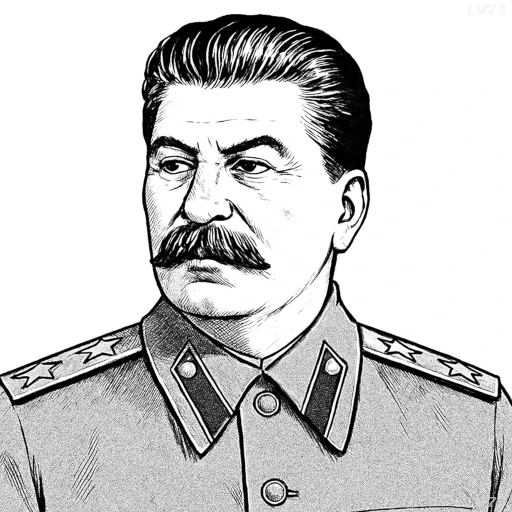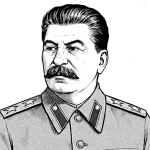“Gratitude is a sickness suffered by dogs.”

- December 18, 1878 – March 5, 1953
- Born in Georgia
- Politician
table of contents
Quote
“Gratitude is a sickness suffered by dogs.”
Explanation
This quote reflects Stalin’s disdain for the concept of gratitude, particularly when it is directed toward others, suggesting that it is a weakness or a sign of subservience. By comparing gratitude to a sickness, Stalin implies that it is something that degrades or diminishes a person’s power or independence, much like how a dog may show loyalty and thankfulness to its master out of dependence. In Stalin’s view, self-reliance and strength were the qualities that should be prioritized, particularly in the context of governance and leadership. Gratitude, as expressed here, would be seen as something that binds individuals to others in a subordinate position, undermining their autonomy.
Stalin’s authoritarian nature and his belief in absolute control over his citizens led him to reject concepts that might foster human connection and vulnerability, such as gratitude. His approach to leadership emphasized fear and obedience rather than mutual respect or appreciation. The statement may also be seen as reflecting his broader worldview, where any form of emotional connection or perceived weakness was viewed as something to be controlled or eliminated. In a society built on fear and power, Stalin sought to suppress the idea of gratitude, as it might lead to individual independence or moral questioning of the state’s actions.
From a broader perspective, this quote raises questions about the role of emotions in a society governed by authoritarian rule. While gratitude can foster human connection and positive social bonds, Stalin viewed it as potentially dangerous because it could lead to empathy or loyalty to something other than the state. Today, this quote serves as a reminder of the ways in which totalitarian regimes may seek to manipulate emotions to undermine individual thought and moral autonomy, highlighting the importance of preserving human connection and gratitude as tools of resistance against such regimes.
Would you like to share your impressions or related stories about this quote in the comments section?



